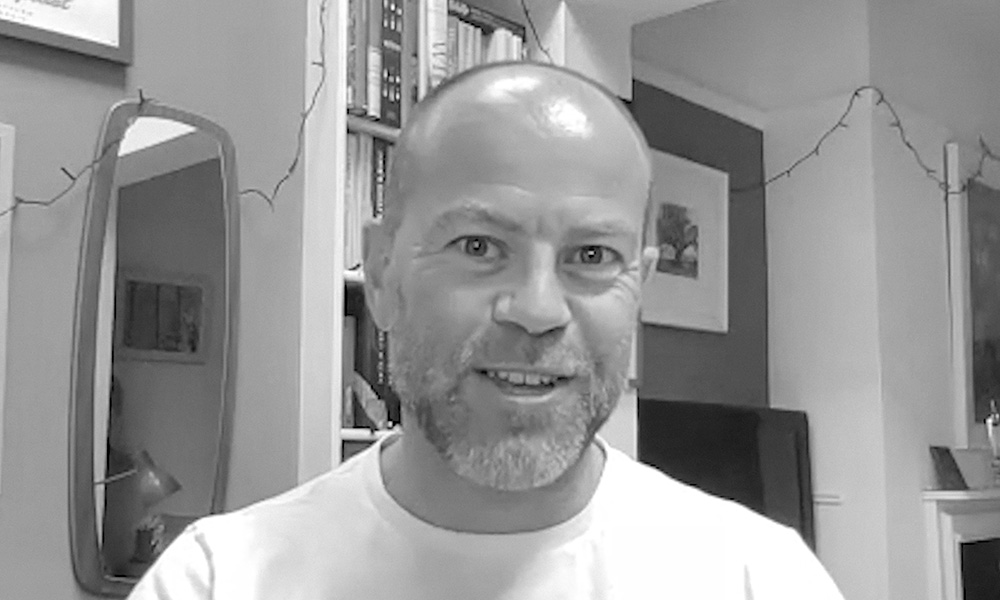92 results
New Leadership Skills for a Post-Pandemic Workforce
The post-pandemic workforce needs leaders who are adaptable, empathetic, digitally savvy, resilient and innovative. By developing these skills, leaders can help their organizations thrive in the face of uncertainty and change.
Post-Covid workplaceShaping cultureTalent managementValues-Driven Growth and Businesses as Responsible Global Citizens
Businesses that have rethought their strategies with their purpose and values at the core are enjoying important payoffs. Growth plans built around purpose and values result in more motivated employees, better company performance and more loyal customers.
Environmental impactPurposeShaping cultureSocial impactStrategyHybrid Work: Increase Performance & Ensure Employee Retention in 2023
Hybrid work models are now an important decision-making factor for job seekers. The clear majority of employees want a hybrid working model with the flexibility to choose between home and office as needed. The shift to hybrid work presents CEOs and CHROs with new challenges, but this change ultimately increases both organizational performance and employee loyalty.
EXHybrid workingPost-Covid workplaceRecruitmentShaping cultureWhitepaperDestroy to Create: Is This the Answer to Creative Thinking?
Creativity within organizations is vital in promoting the dynamic mindset necessary to enact innovation and change, and create value. NTT DATA’s value co-creation program nurtures creative thinking through four key stages.
CreativityInnovationShaping cultureThe Business Opportunities and Challenges of Sustainability 2.0
The global challenges posed by climate change, resource scarcity and social inequality are becoming increasingly urgent. With pressure growing from consumers, investors and governments to operate more sustainably, businesses must adapt to this new reality by changing their business models and value propositions – not only to remain competitive, but to ensure their own survival.
Environmental impactESGOperational excellenceShaping cultureSocial impactPerseverance, Servant Leadership and Achieving Agility in Uncertainty
In a global market defined by uncertainty and choppy economic headwinds, change isn’t always easy to absorb – but with an agile mindset, companies can achieve remarkable outcomes that turn challenges into success stories.
Employee wellbeingOperational agilityShaping cultureStrategyNavigating M&A Post-Pandemic (And Why Culture and Values Matter)
Mergers and acquisitions remain a viable growth strategy for professional services firms, despite the current challenges – but successfully navigating these deals will require a different approach in a post-pandemic market.
FinanceOrganisational designShaping cultureStrategyTeam dynamicHow to Turn Customer Experience into a Tailwind for Revenue Growth
With consumers able to choose between increasingly vast ranges of similarly-priced products and services, customer experience has become an important point of differentiation for businesses. If harnessed strategically, it can become a valuable source of revenue growth.
CXProcurementShaping cultureStrategyShow Them Some Respect: Doing Better At Diversity and Inclusion
How have employee relationships and experiences changed over the course of the pandemic? NTT DATA Romania sought to find out, with results showing a wide range of perceptions: some celebrated the new forms of communication and others were dispirited by the decrease in in-office interaction. This leads to a challenging but crucial question: how can we make sure we all feel included in our organizations?
Diversity, equity & inclusionPost-Covid workplaceShaping cultureTeam dynamicLeadership First, Location Second
No matter how you feel about it, remote work is here to stay. As leaders, how confident and comfortable you are with this shift will depend on your own experiences, background, and even your seniority. There are very real changes involved in working remotely or in hybrid teams, but there is good news: when we take the time to be intentional, the proper courses of action become clear.
Hybrid workingPost-Covid workplaceShaping cultureStrategyTrustA Recipe for Hybrid Working
How have employee relationships and experiences changed over the course of the pandemic? NTT DATA Romania sought to find out, with results showing a wide range of perceptions: some celebrated the new forms of communication and others were dispirited by the decrease in in-office interaction. This leads to a challenging but crucial question: how can we make sure we all feel included in our organizations?
Employee wellbeingEXHybrid workingPost-Covid workplaceShaping cultureHow to Make the New, Hyper-Connected World of Work Work for Everyone
Successful leadership in today’s world of hybrid work requires a reset in how we manage and empower our teams. What we have lost to remote work – those watercooler moments – must be reinstated. Leaders should focus on facilitating social connections and creating a fertile breeding ground for innovation by establishing the structures for employees to network and collaborate across boundaries.
EXHybrid workingOperational agilityShaping cultureStrategyWorking practicesNew Work: Is the Great Resignation Finally Making Us Think Differently?
Few companies have fully grasped the reality of today’s New Work challenges. The majority seem content to wait and see – but this complacency could mean the difference between moving ahead and lagging behind. There is a lot at stake, and to make a success of the new world of work leaders need to move on from technology and team leadership and focus on strategy at a higher level.
Hybrid workingShaping cultureStrategyTalent managementWorking practicesDesigning the Future Workplace
The impact of the pandemic and advancing technologies have made designing the future workplace a complex task. As well as focusing on flexibility and comfort, a good workplace design must support collaboration, interaction and innovation – and have connectivity at its heart. The interoperability and opportunities presented by the metaverse may hold one of the keys to overcoming legacy problems and providing your employees with the best possible experience.
ARHybrid workingOrganisational designPost-Covid workplaceShaping cultureVRBetter Communication: Understanding the New Language of Digital Teamwork
For many years now, there has been miscommunication happening in the workplace. It’s not just about age or technology – it’s because we didn’t have a rulebook for our body language in a digital world. One of the crucial cornerstones of this new way of working is ‘communicate carefully’ and, given how central reading and writing comprehension is to our hybrid work lives, reminding ourselves what good communication looks like is critical to being a conscientious colleague. As our workplaces have become increasingly remote, these principles should be at the forefront of all that we do.
Hybrid workingShaping cultureTeam dynamicPeople Embody the Success of an Organization
Many businesses are struggling to make the right decisions about how to engage their people in this new, almost unrecognizable world of work. Employee engagement is down, reports of burnout are getting worse and worker satisfaction in many organizations is low. Now more than ever, success for any business lies in creating a culture that helps its people grow. But it’s one thing to say that you want to be people-centric, and another to create an environment where this ethos is upheld. In-depth feedback around employee perceptions ensures companies can walk the talk.
EXPost-Covid workplaceRecruitmentShaping cultureTalent managementCreating Balance, Transforming Work, Empowering People
Covid has changed how people view their professional trajectories, as well as the way in which companies perceive their employees. Leaders now have the opportunity to experiment, testing hybrid work formulas in order to secure both the health of the company and of the individuals working within it. At the core is balance, fairness and inclusivity.
Employee wellbeingPost-Covid workplaceRecruitmentShaping cultureTalent managementTrustLooking Back to Get Ahead
Looking back has always been a crucial part of moving forwards. Understanding the history of the workplace can help business leaders to accelerate their path to success in the future. The best advice for delivering a great employee experience, that will attract and retain the best people, is hidden in our past.
EXHybrid workingShaping cultureTrustBuilding Gentelligent Cultures for the Future of Work
Within every organization today, there is an untapped source of advantage, one we all possess but almost no-one is using well: the potential of age diversity. Intergenerational collaborations tap into the different expertise that stems from growing up in different periods of history. To get away from the notion that teams made up of multiple generations will suffer from miscommunication and conflict, leaders must create organizational cultures where generational differences are reframed as a source of strength and opportunity.
Diversity, equity & inclusionL&DShaping cultureTalent managementTeam dynamicHow Automation Will Unlock the Next Level of Human Performance
When so much is changing in our day-to-day personal and professional lives, organizations need to make sure they are adjusting to the new demands of work whilst being sensitive and supportive of their workers. Automation allows employees to engage in creative, exciting, rewarding endeavors that lead to elevated career and personal satisfaction – as well as delivering efficiencies for the business.
AutomationEmployee wellbeingL&DShaping cultureTalent managementWorking practicesInclusion and Diversity Matter, and Here’s Why
Leaders today face a bewildering amount of change and uncertainty. They are expected to guide others, even when they themselves are unsure of the way forward. Yet diversity, which is often perceived as a problem, is actually a free resource to help leaders to de-risk and calibrate their decision-making.
Diversity, equity & inclusionShaping cultureStrategyTeam dynamicResponsible Freedom: Creating the Connected Future Workplace
The pandemic forced businesses and organizations to abandon the physical office and adopt remote working. But with Covid now seemingly behind us, and hybrid practices well-established, is there a danger that without face-to-face interaction, organizations will lose the very thing that keeps them connected?
Hybrid workingPost-Covid workplaceShaping cultureStrategyTalent managementThriving When the “Authorities” No Longer Know What to Do
Executives everywhere are having to re-evaluate their purpose and re-establish their resolve, building a new set of muscles to lead. True leadership is being the author of your own story, whilst staying true to your values. Holding on to that central purpose, that constant in a sea of changes, will allow leaders to thrive, even as the rulebooks are being rewritten before our eyes.
PurposeShaping cultureStrategyLessons From the Past to Guide the Future: Humanity in Cybersecurity
Creating effective cybersecurity systems is about so much more than understanding your vulnerabilities and putting measures in place to mitigate them. It begins with understanding what has made human beings feel safe in the past, and using those lessons and behaviors to build an electronic world they can trust.
CXEXSecurityShaping cultureTrustElevating Organizational Performance With Design Thinking
Overcoming the traditional mindsets that limit the technology landscape requires a refocus on human needs and empathetic design. With learnings from different cultures, the expertise of working within varied environments and the proven results that such creativity delivers, design-led approaches and frameworks are transforming how organizations tackle legacy challenges.
Design & UXDesign thinkingEXShaping cultureEthics: A Consultant’s Guide
Being able to recognize a consulting organization’s ethics, reflected in their culture, greatly influences their clients’ ability to trust them. It is therefore the remit of the individual consultant and the organization to ensure they are engaging clients with the best intent, that they don’t falsely represent themselves, that they charge fairly, and conduct their business with integrity.
Corporate governanceESGEthicsShaping cultureTrustTrusting the Human in Our Future
Employees and customers have new expectations of organizations, not just to speak and understand their language, but ultimately to be human – in the decisions that they make, the values they represent, and the way they contribute to human progress. Trust is the driving force of change and value creation; trust gives us the power to reimagine, rethink and reshape our world, environment and professional as well as personal context.
CXEXShaping cultureTrustWorking practicesHow Customer Empathy Drives a Successful Omnichannel Strategy
If the past two years have taught organizations anything, it’s that empathy is an essential part of customer service and engagement. This is the right time for organizations to focus on building a culture of empathy by developing processes that promote empathetic customer experiences and engagements through tailored interactions and smart technology.
Artificial intelligenceCXShaping cultureEmpathy and Trust: The Human Engine in Organizational Performance
On the back of the biggest ever global economic shutdown, organizations embraced empathy and trust as the newest workplace traits. As we begin to experience some semblance of normalcy, there is a window of opportunity to leverage this rediscovered state of ‘humanized connection’ for customer-led empathy to improve people and business performance.
Employee wellbeingShaping cultureSocial impactTrustHow Companies Can Build Trust in Uncertain Times
Trust can take years for organizations to build with customers and employees, but only moments to break. How can businesses secure and build trust that can stand the test of time in a turbulent period of economic shakiness, political unrest and a global pandemic?
Corporate governanceShaping cultureTrustTrust: The New Currency of Business
In a world where skepticism and misinformation have now become the default, trust has become the new currency for business. And those companies that know how to spend it well can create a competitive advantage by making sure that their actions speak louder than words.
PurposeSecurityShaping cultureStrategyTalent managementTrustThe Human Side of Risk
In such turbulent times, with a global pandemic and the drive towards the digital world, dependence on cyber safety and consumer trust only becomes increasingly important. Technology continues to develop in complexity, as do our methods to mediate it, but it’s imperative that we don’t forget the human side of risk, too.
EXRisk managementShaping cultureTrustGender Equality – The New Leadership Advantage
In today’s fast-changing markets, where adaptability is key to success, traditional leadership thinking is too rigid to effectively respond to unexpected events. What’s needed instead at a senior level is a vibrant mix of thought and opinions that can deliver creative solutions to unexpected events. This means that organizations with greater gender balance at the highest level are much better equipped to remain competitive.
Diversity, equity & inclusionEXOrganisational designShaping cultureStrategyTalent managementWorking practicesThe Value of Trust in Business Relationships
Today the global operating environment stands on shaky foundations. Technology is changing at unprecedented rates, and with significant political and economic instability, uncertainty defines interaction, experience and strategy. To build a future that can withstand this complexity, organizations need to put trust at the forefront of their engagements and operations.
BrandESGShaping cultureTrustWhy the Time Has Come to Reimagine the Employee Experience
Getting your EX right has the power to transform, making a fundamental difference to your people, your bottom line, and your organisation’s ability to deliver a positive social impact.
Design thinkingEXShaping cultureThe Rise of Collaborative Leadership
The collaborative approach to leading teams is best suited for today’s complex workplace, where newer, less-defined problems need agile solutions. Through collaborative leadership, executives can create an inclusive environment that energises teams, releases creativity, and cultivates a company culture that is both productive and joyful where information is exchanged organically, and everyone takes responsibility for the whole.
Diversity, equity & inclusionEmployee wellbeingShaping cultureTeam dynamicHow to Use Data Science to Make Faster and Better Decisions
Could it be possible to make your organisation twice as agile? When businesses behave intelligently, they use data science to facilitate a culture of continual, democratised decision-making, which can cut response times in half.
Artificial intelligenceData strategy & BIOperational excellenceShaping cultureAmplifying Employee Satisfaction With Analytics
Covid has changed almost everything about how we work, and now HR is undergoing a revolution. HR’s most important role, arguably, is improving the employee experience – in turn contributing to profitability, competitiveness and, of course, the happiness of the workforce. Here’s how data and analytics support this aim.
Data strategy & BIEXPost-Covid workplaceShaping cultureWhite Paper: Accelerating to an Intelligent Enterprise
What does it take to build an intelligent enterprise? The combination of human intellect and the computer’s proficiency in performing rules-based tasks creates a hybrid ability far better than man or machine can achieve alone. To become a digitally optimised organisation, and sustain it, companies need a clear understanding of what they hope to gain, plus a cohesive plan to bring technology and people together for the maximum benefit.
Breakthrough technologiesHybrid workingShaping cultureWhitepaper
















































